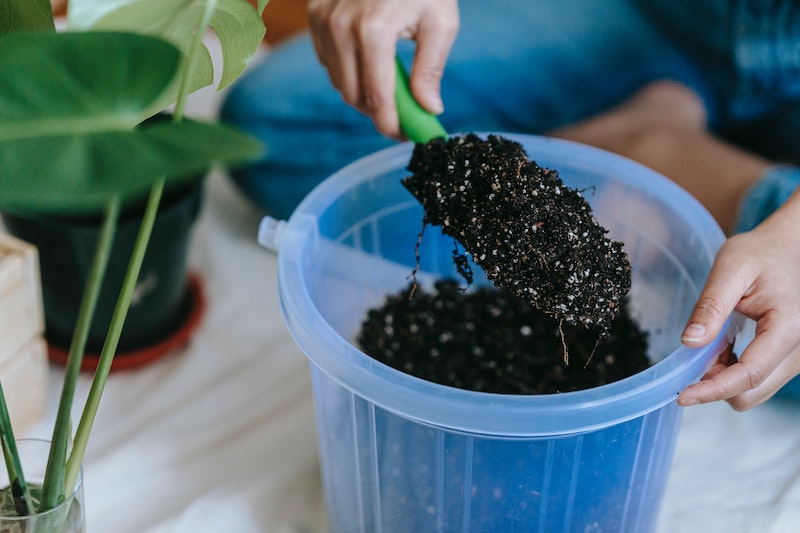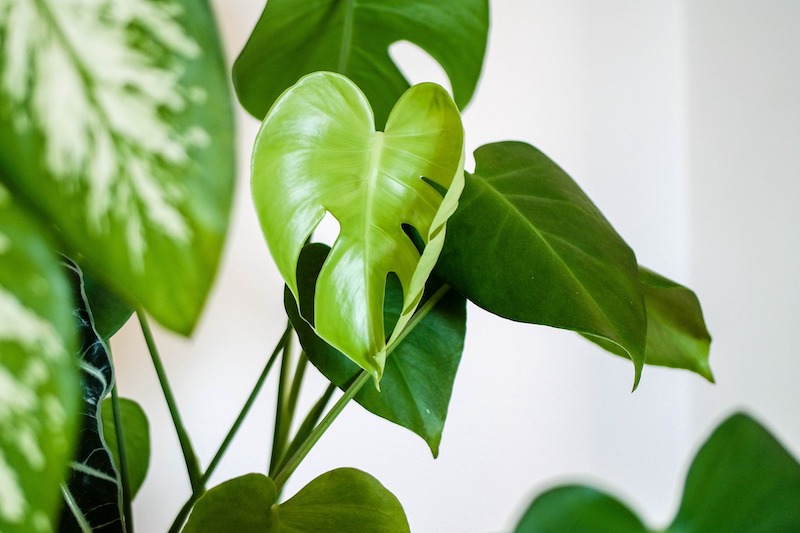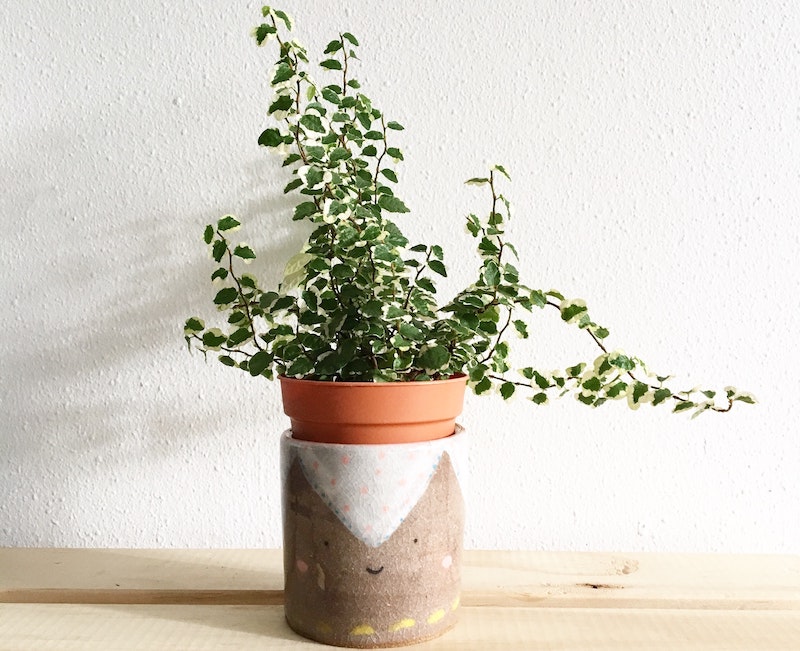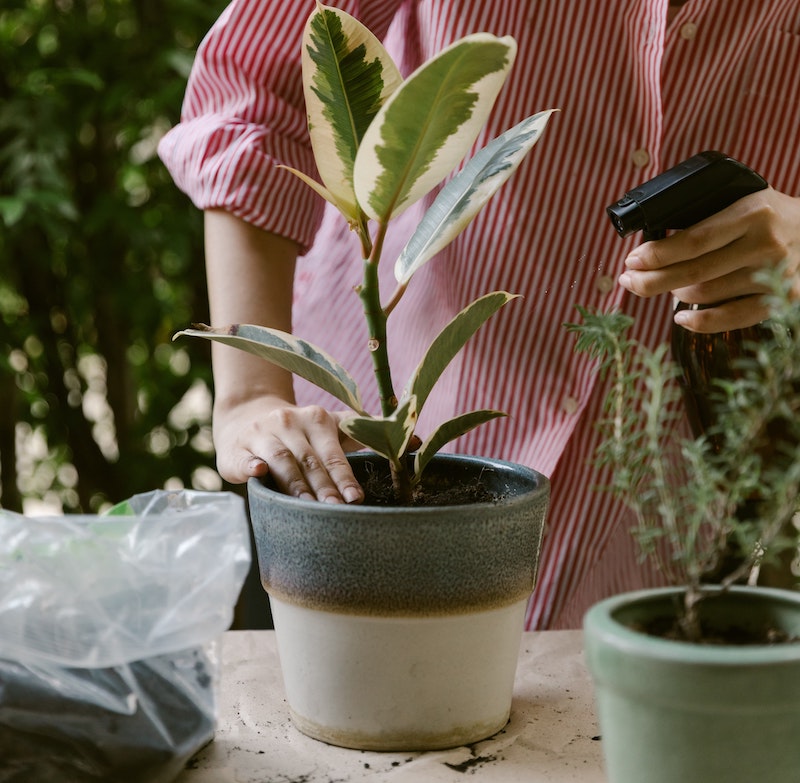Nutrients like nitrogen, phosphorus, potassium, and others are essential for plants to grow and survive. When planted in the ground, plants are able to access naturally occurring nutrients from the breakdown of organic matter like bark and leaves in addition to the nutrients that leach into the soil when it rains. For this reason, we provide potted plants, whose soil is depleted of nutrients much faster, with supplemental nutrients in the form of fertilizer. While there is great variability in houseplants, many will benefit from fertilizer application.

Why Fertilize Houseplants
When looking at a fertilizer container, you will often see three numbers. These three numbers refer to the main components of most fertilizers: N-P-K; nitrogen, phosphorus, and potassium. Nitrogen is the most responsible for leafy, green growth, phosphorus for root growth, and potassium for water and nutrient transport, among other things. In addition to these main players, other macro- and micro-nutrients can be found in fertilizers, all vital for the health of a plant. Without adequate nutrients, plants can fail to grow, produce their own food, and become more prone to pests and disease.

Houseplants kept indoors tend to grow slower than those outside, using nutrients less rapidly. This is why fertilizers formulated for houseplants are usually less strong or require more dilution than fertilizer you would use outside in a garden. Many houseplants, especially leafy, faster-growing tropical plants, will benefit from monthly fertilizer applications during the spring and summer when plants are growing the most. Fertilizer will aid in growth, improve pest and disease resistance, and create an overall more healthy plant.
It is important to always research different houseplants prior to fertilizing, however, as some do not require feeding and could even be damaged by fertilizer. Fertilizing in the winter is not necessary in most cases, as indoor plants are growing slower or go dormant.
How Often To Fertilize Houseplants
The frequency of fertilizing will greatly depend on the type of plant you are growing. For example, cacti that are watered infrequently and grow slower may only need a fertilizer application once or twice a year. In contrast, a fast-growing pothos may benefit from fertilizer once or twice a month during the growing season to aid in growth and fullness. It is important to research your plants before providing them with fertilizer.
How To Tell If A Houseplant Needs Fertilizer
Many houseplants can grow and survive for quite some time before truly needing fertilizer. Because these plants are indoors with less access to light, they generally grow slower and require fewer nutrients compared to plants in a garden.
Signs that a houseplant will benefit from fertilizer include slow or stunted growth, fading color, or yellowing leaves. The caveat is that other care issues can cause these signs and should be ruled out prior to applying fertilizer; for example, inadequate lighting, improper watering, lack of humidity, and fluctuating temperature can all cause fading color. Instead of waiting for a houseplant to show signs of nutrient deficiencies, apply fertilizer in the spring and summer according to the plant’s fertilizer needs.

Best Fertilizer For Houseplants
Over-fertilizing can cause much more damage to a plant than no fertilizer at all. Potted plants are prone to damage from fertilizer when the concentration is too high; they are also sensitive to a buildup of salts in the soil and application of fertilizer to dry soil. Because of this, it is a good idea to choose a fertilizer that is formulated for houseplants, whether it be a general-purpose ‘indoor’ fertilizer or one formulated for specific houseplants such as orchids, African violets, cacti, etc.
Other fertilizers can be used, but typically need to be diluted to half or a quarter of the strength specified on the label to prevent damaging houseplant roots. We also recommend using organic fertilizers for houseplants, which tend to be gentler formulas that are less likely to burn plants.

Houseplant Fertilizing Tips
Compared to plants grown outdoors in garden beds, houseplants typically need less fertilizer. However, many houseplants will benefit from regular fertilizer applications while they are growing the most in the spring and summer. It is important to always follow fertilizer instructions to prevent damaging your plants.
Here are the most important tips to remember
- Fertilize in the growing season - Spring/Summer
- Do not over-fertilize
- Research specific plants prior to fertilizing
- Use a houseplant-specific fertilizer


